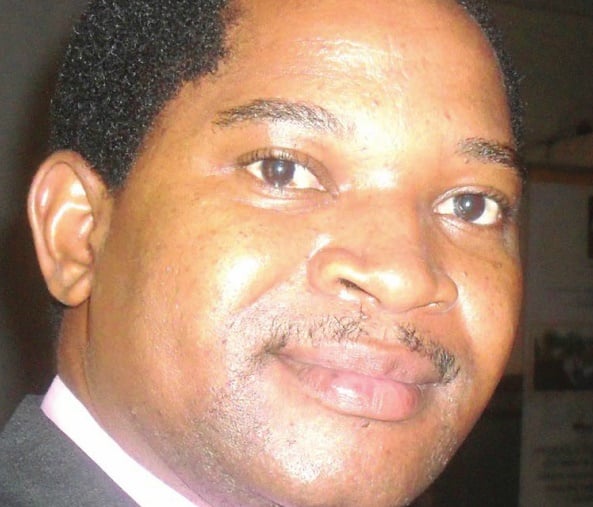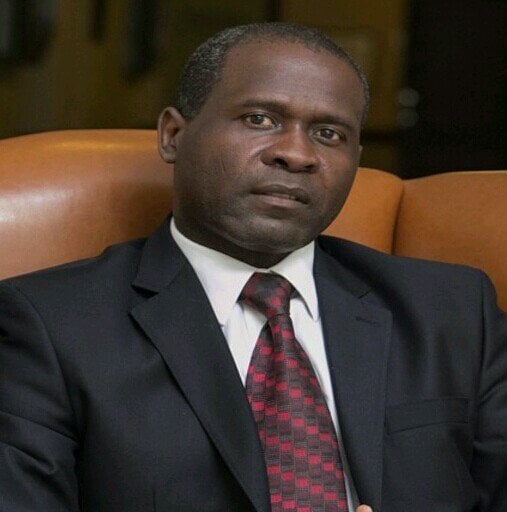![Magalasi: Reforms key to economic revival]()
Radical changes are needed to revive Malawi’s economy, which is in bad shape and requires a fresh approach, Economics Association of Malawi (Ecama) has said.
[caption id="attachment_95972" align="alignright" width="507"]
![Kachaje: Malawi economy in bad shape]()
Kachaje: Malawi economy in bad shape[/caption]
[caption id="attachment_95961" align="alignright" width="593"]
![Magalasi: Reforms key to economic revival]()
Magalasi: Reforms key to economic revival[/caption]
The group’s president Henry Kachaje said it clear in the light high inflation rate at 23 percent as of August 2015, according to National Statistical Office (NSO), high interest rates in commercial banks, hovering around 37 percent as well as a downgraded gross domestic product (GDP) growth rate of three percent this year from an earlier projection of 5.5 percent, that economy is not ticking.
Unemployment levels continue to rise including for university graduates.
An the International Monetary Fund (IMF) mission to Malawi has since declared the country’s three-year Extended Credit Facility (ECF) off-track due to fiscal slippages equivalent to about two percent of GDP, which emerged during the second half of 2014/15 financial year, in part because of overspending on the wage bill.
Kachaje said there need for quick “fix “solutions so that the economy gets back on track.
He said IMF is only giving “statistical evidence” on Malawi’s ailing economy but the people are feeling the pinch.
Ecama president said the government must intervene and come up with policies that ensure a change of direction and policy realignment so that policies the country is developing and pursuing are aligned to long-term development vision.
He said the country need to be prioritising “critical areas.”
President Peter Mutharika’s chief economic adviser Collins Magalasi, who participated in the debate organised by Ecama in Blantyre, admitted that Malawi is in dire economic situation.
“We do not have to wait to be told that our economy is not in good shape, but our duty as government is to keep improving and that is what we are trying to do,” Magalasi said.
Magalasi said most of the economic challenges the country is facing today were inherited by the previous People’s Party administration.
He said Mutharika government has prioritised the public sector reforms “so that we become efficient and effective.”
Magalasi said the reforms are key to economic revival.
Meanwhile, the Malawi kwacha is on a steady appreciation path and was trading at around K549.9343 against the dollar by Tuesday on the foreign exchange market, according to the Reserve Bank of Malawi (RBM).
This is a gain from a low of K565 to a dollar a few weeks back.
Foreign exchange market dealers have attributed the recent appreciation to, among others, declining demand for foreign currency and lower buying power among foreign exchange buyers or businesses.
The local unit has continued to appreciate against the greenback and South African rand, but is depreciating against the British pound and euro.
“I think there have been times when we see some temporal movement of the local currency against the major currencies, but what we must ask ourselves are questions as to why it is gaining, is it because we have produced more as a country?
“Is there something we can attribute to that kind of currency stability? If we cannot pinpoint to something like that, then we must get back to the drawing board and fix,” commented Kachaje in the local press.

 Kachaje: Malawi economy in bad shape[/caption]
[caption id="attachment_95961" align="alignright" width="593"]
Kachaje: Malawi economy in bad shape[/caption]
[caption id="attachment_95961" align="alignright" width="593"] Magalasi: Reforms key to economic revival[/caption]
The group’s president Henry Kachaje said it clear in the light high inflation rate at 23 percent as of August 2015, according to National Statistical Office (NSO), high interest rates in commercial banks, hovering around 37 percent as well as a downgraded gross domestic product (GDP) growth rate of three percent this year from an earlier projection of 5.5 percent, that economy is not ticking.
Unemployment levels continue to rise including for university graduates.
An the International Monetary Fund (IMF) mission to Malawi has since declared the country’s three-year Extended Credit Facility (ECF) off-track due to fiscal slippages equivalent to about two percent of GDP, which emerged during the second half of 2014/15 financial year, in part because of overspending on the wage bill.
Kachaje said there need for quick “fix “solutions so that the economy gets back on track.
He said IMF is only giving “statistical evidence” on Malawi’s ailing economy but the people are feeling the pinch.
Ecama president said the government must intervene and come up with policies that ensure a change of direction and policy realignment so that policies the country is developing and pursuing are aligned to long-term development vision.
He said the country need to be prioritising “critical areas.”
President Peter Mutharika’s chief economic adviser Collins Magalasi, who participated in the debate organised by Ecama in Blantyre, admitted that Malawi is in dire economic situation.
“We do not have to wait to be told that our economy is not in good shape, but our duty as government is to keep improving and that is what we are trying to do,” Magalasi said.
Magalasi said most of the economic challenges the country is facing today were inherited by the previous People’s Party administration.
He said Mutharika government has prioritised the public sector reforms “so that we become efficient and effective.”
Magalasi said the reforms are key to economic revival.
Meanwhile, the Malawi kwacha is on a steady appreciation path and was trading at around K549.9343 against the dollar by Tuesday on the foreign exchange market, according to the Reserve Bank of Malawi (RBM).
This is a gain from a low of K565 to a dollar a few weeks back.
Foreign exchange market dealers have attributed the recent appreciation to, among others, declining demand for foreign currency and lower buying power among foreign exchange buyers or businesses.
The local unit has continued to appreciate against the greenback and South African rand, but is depreciating against the British pound and euro.
“I think there have been times when we see some temporal movement of the local currency against the major currencies, but what we must ask ourselves are questions as to why it is gaining, is it because we have produced more as a country?
“Is there something we can attribute to that kind of currency stability? If we cannot pinpoint to something like that, then we must get back to the drawing board and fix,” commented Kachaje in the local press.
Magalasi: Reforms key to economic revival[/caption]
The group’s president Henry Kachaje said it clear in the light high inflation rate at 23 percent as of August 2015, according to National Statistical Office (NSO), high interest rates in commercial banks, hovering around 37 percent as well as a downgraded gross domestic product (GDP) growth rate of three percent this year from an earlier projection of 5.5 percent, that economy is not ticking.
Unemployment levels continue to rise including for university graduates.
An the International Monetary Fund (IMF) mission to Malawi has since declared the country’s three-year Extended Credit Facility (ECF) off-track due to fiscal slippages equivalent to about two percent of GDP, which emerged during the second half of 2014/15 financial year, in part because of overspending on the wage bill.
Kachaje said there need for quick “fix “solutions so that the economy gets back on track.
He said IMF is only giving “statistical evidence” on Malawi’s ailing economy but the people are feeling the pinch.
Ecama president said the government must intervene and come up with policies that ensure a change of direction and policy realignment so that policies the country is developing and pursuing are aligned to long-term development vision.
He said the country need to be prioritising “critical areas.”
President Peter Mutharika’s chief economic adviser Collins Magalasi, who participated in the debate organised by Ecama in Blantyre, admitted that Malawi is in dire economic situation.
“We do not have to wait to be told that our economy is not in good shape, but our duty as government is to keep improving and that is what we are trying to do,” Magalasi said.
Magalasi said most of the economic challenges the country is facing today were inherited by the previous People’s Party administration.
He said Mutharika government has prioritised the public sector reforms “so that we become efficient and effective.”
Magalasi said the reforms are key to economic revival.
Meanwhile, the Malawi kwacha is on a steady appreciation path and was trading at around K549.9343 against the dollar by Tuesday on the foreign exchange market, according to the Reserve Bank of Malawi (RBM).
This is a gain from a low of K565 to a dollar a few weeks back.
Foreign exchange market dealers have attributed the recent appreciation to, among others, declining demand for foreign currency and lower buying power among foreign exchange buyers or businesses.
The local unit has continued to appreciate against the greenback and South African rand, but is depreciating against the British pound and euro.
“I think there have been times when we see some temporal movement of the local currency against the major currencies, but what we must ask ourselves are questions as to why it is gaining, is it because we have produced more as a country?
“Is there something we can attribute to that kind of currency stability? If we cannot pinpoint to something like that, then we must get back to the drawing board and fix,” commented Kachaje in the local press.